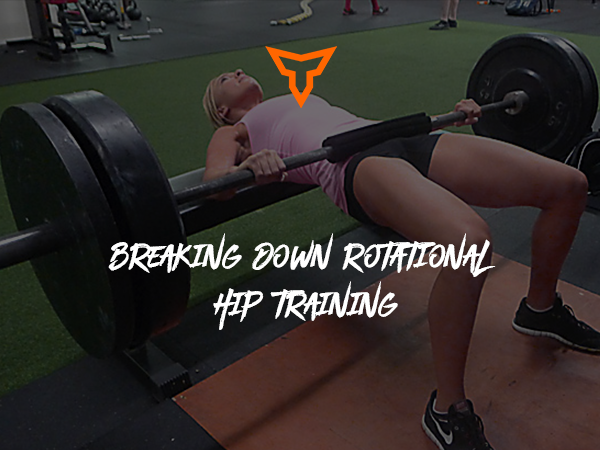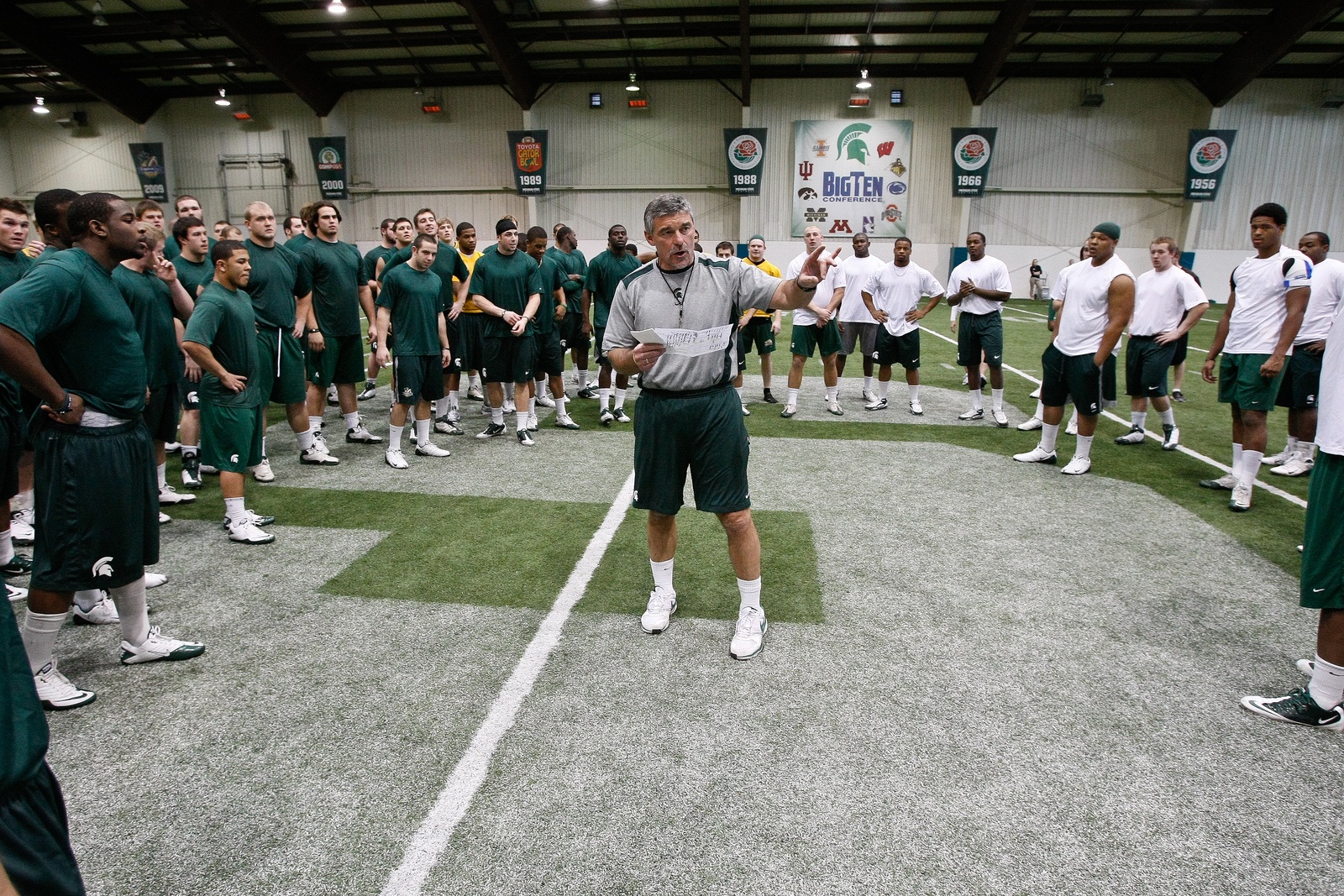Why You Need to Hire an Intern (And How to Do It)
Interns make the world go ‘round in the strength and conditioning field. Chances are if you’re a strength and conditioning coach, you’ve interned at least once if not half a dozen times. Hopefully, your time as an intern motivated you to give back to future interns.
Ironically, one topic that most internships don’t cover is exactly why and how to hire interns. In this article, I will explain the benefits of adding a coaching intern to your strength and conditioning program and how to go about hiring one.
Why You Need To Hire an Intern
YOU NEED HELP. It’s ok to admit it. Strength and conditioning coaches all need help with their jobs, for the simple fact that we’re expected to do so much. Aside from coaching hundreds of athletes, writing training programs, and arranging equipment purchases, some of us have the additional duties of managing another facility, overseeing student-workers, running internship programs, managing fitness centers, teaching, etc. Delegating smaller tasks to interns can free up more time than you’d imagine. It doesn’t require a B.S., M.S., CSCS, or SCCC to input data into TeamBuildr or Excel. Nor do you have to be highly experienced to setup or tear down a facility for training sessions. One more set of eyes with a clipboard or hands running a stopwatch or moving cones will also make testing and training sessions move along much quicker.
Aside from the help you’d receive, hiring an intern is also about the help you give. Being a mentor is a chance to educate the next generation of strength coaches and “pay it forward” in the profession. It can also be a way to correct what you may not like about the field. One way of approaching your new internship program is to focus on what you wish you would have learned or experienced during your days as an intern or young strength coach.
Lastly, if you’re a marketing and social media orientated program, helping to place your highly qualified former interns into paid strength and conditioning positions will serve to grow your program’s notoriety. What’s not to like about being regarded as a top-notch place to receive experience and education? It is, after all, what all of our colleges and universities strive for.
Get the latest Strength & Conditioning tips for coaches.
Subscribe to the TeamBuildr Blog
How to Hire an Intern
The most important part of hiring an intern is to know exactly what you’re looking for, what you will require, and what you have to offer. Common internship considerations include:
Graduate vs Undergraduate
This decision will have a big impact on the type of internship you offer. Undergraduates are normally students who are looking to get their feet wet in the field of strength and conditioning. Internships that are made available through the college or university will often be available only to upperclassmen. These students may have no background in performance training, other than what they may have learned from a sport or strength coach as an athlete. Because undergraduate interns are not usually certified, they cannot be left with a team or be in charge of a team’s training. Conversely, graduate interns are normally certified and can, therefore, supervise training sessions and be the main coach in charge of a team’s training program. However, because of the greater amount and higher quality of help afforded by a graduate intern, payment in the form of tuition reimbursement, housing, and/or a meal plan is usually expected.
Paid vs Unpaid
Undergraduate internships are, for the most part, unpaid. Interns are usually students at the institution offering the internship. Graduate-level internships (not to be confused with a Graduate Assistantship or GA position) also exist. These internships are usually referred to as “Professional Internships” and often include a small stipend. Some states may also have stipulations on payment for work done or hours worked, based on labor laws.
Continuing Education Opportunities and/or Curriculum-based Internship
Most internships now days offer some sort of educational component, aside from just watching what the paid strength coach(es) do. Continuing education could be as simple as bringing in or teleconferencing with a speaker. It could also include reading assignments and discussion of a strength and conditioning related book. Curriculum-based internships usually have a handbook or manual that outlines weekly assignments, learning outcomes, goals, etc. Both of these types of internships usually involve weekly internship meetings.
Certification
Most nationally recognized certifications require a Bachelor’s degree. (The USA Weightlifting Level 1 Sports performance coach certification and several online certifications do not, however.) Therefore, most graduate-level interns will be expected to hold at least one certification. It is up to the head coach to deem which certifications are acceptable and which are not. Per NCAA bylaws, a nationally recognized certification is required for an intern to be left in charge of a team (warm-up, conditioning, supervising a training session, etc.).
Hourly Restrictions or Requirements
Internships may require that interns assist with athlete training sessions for a minimum number of hours per week. Hourly requirements may or may not include mandatory internship meetings. In some states, depending upon labor laws paid interns will sometimes have a restriction on the maximum number of hours they can work in a semester or school year. This is good knowledge to have before starting a paid internship.
Team Assignments
Will the intern(s) be assigned to assist with specific teams? Will they simply work with whatever teams are training during their work hours? This detail may be dependent upon their work schedule.
Advertising
Finding interns at an institution that has an exercise science program is pretty much a done deal. Every semester you will have undergraduate, and potentially graduate, interns vying for the chance to learn from your program. However, if you are at a school that does not have an exercise science program or any graduate programs, advertising for your internship is crucial to bring in reliable, responsible, and qualified personnel.
If you’re only interested in local candidates, advertising in the school’s newspaper, email bulletin, or on the school’s employment website would be the best way to go. To broaden your pool of candidates, consider advertising on strength and conditioning related websites. Sites such as FootballScoop.com’s Strength Scoop page, the CSCCa Job Board, StrengthPerformance.com’s Job Zone, and Indeed.com require no fees to post job openings. The NCAA Marketplace and NSCA Job Market both require a fee to post, but have several thousands of members who utilize the job search features. Also, don’t forget that social media websites, such as Facebook and Twitter, are outstanding methods to advertise open positions and connect with potential hires.
When hiring an intern, keep in mind that it’s YOUR internship; be creative in what you offer. There is no set way of structuring or running the program. Many internships offer very unique opportunities for experience and education based on the coach in charge and the opportunities available at the institution and in the surrounding area. Hiring an intern can be a bit of work up front. But the price incurred by taking on an intern is outweighed by the impact your mentorship can have on your intern’s career and the future of the profession.
Subscribe to our blog
Subscribe to receive the latest blog posts to your inbox every week.
Related posts

5 Steps to Building a Successful Internship Program

Breaking Down Rotational Hip Training

